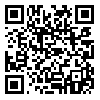Volume 5, Issue 2 (2025)
jpt 2025, 5(2): 141-154 |
Back to browse issues page
Download citation:
BibTeX | RIS | EndNote | Medlars | ProCite | Reference Manager | RefWorks
Send citation to:



BibTeX | RIS | EndNote | Medlars | ProCite | Reference Manager | RefWorks
Send citation to:
Nabati F. The Importance of Paying Attention to the Logica Docens/Logica Utens Duality. jpt 2025; 5 (2) :141-154
URL: http://jpt.modares.ac.ir/article-34-79604-en.html
URL: http://jpt.modares.ac.ir/article-34-79604-en.html
Department of Philosophy, Faculty of Persian Literature and Foreign Languages, Allameh Tabataba'i University, Tehran, Iran
Abstract: (1019 Views)
The concepts of logica docens and logica utens and the discussion of the distinction between them became popular among logicians since the Middle Ages. Of course, this duality was not considered for a long time after the Middle Ages until Peirce, an American logician and pragmatist philosopher, reintroduced it into logical discussions. Peirce himself used these concepts to express his views on the nature of logic. Today, other logicians such as Priest have used this duality to express and explain various logical issues. In discussions such as examining criticisms of logic, teaching logic, the issue of adopting a logic, logical pluralism, and the possibility of reforming and revising logic, etc. Using this duality can lead to a better confrontation with problems and, therefore, help explain problems better and find solutions to them.
Article Type: Original Research |
Subject:
Logic and Philosophy of Logic (Analytical)
Received: 2025/02/20 | Accepted: 2025/04/11 | Published: 2025/04/30
Received: 2025/02/20 | Accepted: 2025/04/11 | Published: 2025/04/30
References
1. Carroll L (1895). What the tortoise said to Achilles. Mind. 4(14):278-280. [Link] [DOI:10.1093/mind/IV.14.278]
2. Cohnitz D, Nicolai C (2021). How to adopt a logic. Dialectica. 75(4):1-31. [Link]
3. Dinani GE (2000). The adventure of philosophical thought in the Muslim world (Volume 1). Tehran: TARHE No. [Persian] [Link]
4. Fisher J (2007). On the philosophy of logic. Boston: Cengage Learning. [Link]
5. Geach PT (1979). On teaching logic. Philosophy. 54(207):5-17. [Link] [DOI:10.1017/S0031819100024840]
6. Kahneman D (2011). Thinking fast and slow. New York: Farrar, Straus and Giroux. [Link]
7. Lu-Adler H (2018). The nature and place of logic: A history of controversies. In: Kant and the science of logic: A historical and philosophical reconstruction. Oxford: Oxford University Press. p. 31-68. [Link] [DOI:10.1093/oso/9780190907136.003.0003]
8. Padro R (2015). What the tortoise said to Kripke: The Adoption Problem and the epistemology of logic [dissertation]. New York: CUNY Academic Works. [Link]
9. Peirce CS (1994). The collected papers-past masters introduction. Deely J, editor. Cambridge: Harvard University Press. [Link]
10. Priest G (2014). Revising logic. In: The metaphysics of logic. Cambridge: Cambridge University Press. p. 211-223. [Link] [DOI:10.1017/CBO9781139626279.016]
11. Quine WV (1960). Carnap and logical truth. Synthese. 12(4):350-374. [Link] [DOI:10.1007/BF00485423]
12. Wason PC (1966). Reasoning. In: New horizons in psychology. Foss BM, editor. Harmondsworth: Penguin. p. 135-151. [Link]
13. Wolenski J (2016). Logic in the light of cognitive science. Studies in logic grammar and rhetoric. 48(1):87-101. [Link] [DOI:10.1515/slgr-2016-0057]
14. Yousofsani SM (2004). Definition and goal of logic from Muslim logicians' view point. Philosophy of Religion Research. 2(1):111-124. [Persian] [Link]
| Rights and permissions | |
 |
This work is licensed under a Creative Commons Attribution-NonCommercial 4.0 International License. |






